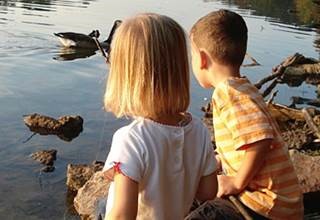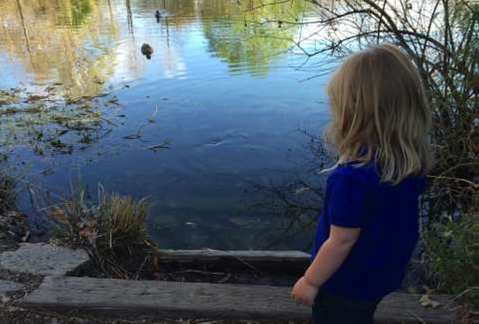How would you describe your child’s spirit?
You might find that a tough question to answer. What do we mean by “spirit,” really?
I like this definition by Mechele Pruitt, Director of Parents Place
“Spirit is the type of energy we bring: whether to a room, a conversation, our work, a musical instrument, or other activity.”
Perhaps you see your child as fiery, bold, nimble, or charismatic. Or perhaps your child’s teacher or a relative has described your child as “a leader,” “a natural peacemaker,” or “a great thinker.” Think about the ways in which your child shows up in the world and their unique characteristics and you might have a good sense of their spirit.
So how do parents and teachers nurture the spirit of each child?
This year teachers chose to spend a part of the monthly staff meetings in a book study and picked Nurturing the Spirit by Aline D Wolf. This book explains how the fundamental purpose of Maria Montessori’s work was to bring about a more peaceful world by nurturing the spirit of the child. Although Wolf does get a little “bogged down “ in her descriptions of the meaning and importance of spirit, she hits the nail on the head with her prescription for nurturing the Spiritually-Aware Adult. In order to nurture the spirit of the child we must first nurture our own spirits.

We do this by accepting children as they are, right now. Each child needs to experience love and to feel “lovable” . So many children lose this when they join an educational system, which evaluates their personal worth only on the basis of measurable academic achievements.
Wolf describes the teachers she has met in her many years of experience as reflecting humility, sensitivity, responsiveness and a deep respect for nature and for all people. Montessori teachers are called upon to first study themselves
“One who would become a teacher according to our systems must examine himself…and rid his heart of pride and anger. He must learn how to humble himself and be clothed in charity”. (The Secret Of Childhood).
Wolf also lays out many ideas for meeting the needs of children, both in the home and at school. She devotes a chapter to each of these important characteristics we can cultivate; cultivating stillness, encouraging the gift of wonder, building self-love and caring for the earth. She also explains the cosmic education, which is the centerpiece of elementary education. In presenting the idea of the cosmos, we aim to create admiration, appreciation and wonder and to awaken in each child an awareness of the role he or she must play in it’s unfolding.

The book is aimed at non- sectarian classrooms, but does include a discussion of religious education and an article on Catechesis of the Good Shepherd, which is pertinent to our approach at St. Paul’s.
After nearly 30 years of Montessori education one of the most important ways I have learned to nurture the spirit of children is to remember what it is like to be a child, (albeit a long time ago!) I can be silly, be light, have a joke. Life isn’t meant for being miserable or being good all the time!
We have several copies of Nurturing the Spirit available to borrow. Check with the front office.

